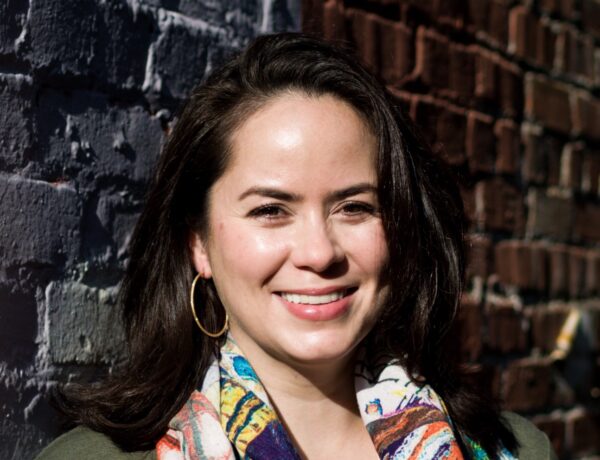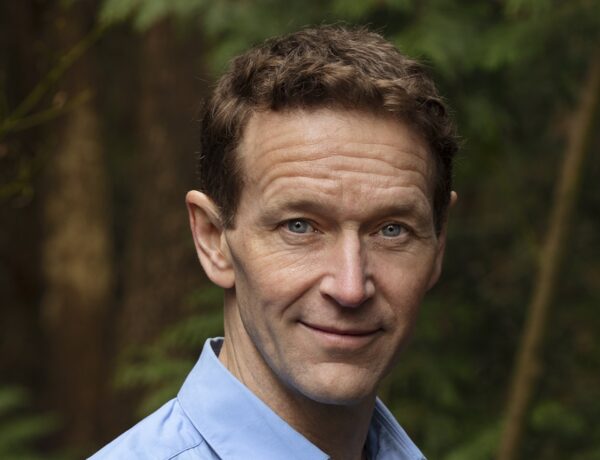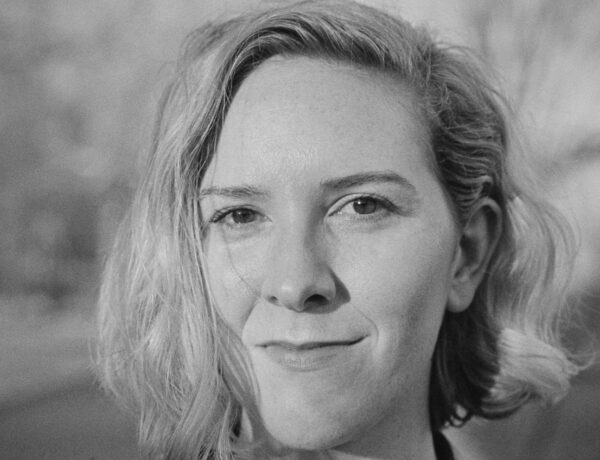Jenny Sadre-Orafai is the author of Paper, Cotton, Leather, Malak, and Dear Outsiders and the co-author of Book of Levitations.
Her prose has appeared in The Rumpus, Fourteen Hills, The Los Angeles Review, The Collagist, and others. She co-founded and co-edits Josephine Quarterly and teaches creative writing at Kennesaw State University.
Looking for inspiration to help you achieve your writing goals? Subscribe to our newsletter for exclusive insights into the routines, habits, and techniques of some of the most celebrated authors in history.
Hi Jenny, it’s wonderful to have you with us today. Your recent book, Dear Outsiders, is a collection of prose poems that explores identity, family, and place. Can you tell us a bit about what inspired you to write this book?
Thank you so much for having me! I was initially inspired to document the anxieties I have about my parents’ eventual deaths and about learning who I am aside from my parents’ daughter, which after all these years and additional roles, it’s what I identify most with. The book evolved into a way, though, of also documenting how it’s felt to grow up in the South as a person of color, of being made to feel like I don’t belong.
Dear Outsiders has been described as a collection of prose poems that appear as souvenirs, holding the essence of place within them. Can you tell us more about the role of place in this book, and how you approached writing about it?
When I was in my twenties, I would ask people I had just met if they preferred the water or the mountains (as if these are the only two landscapes). I think it was a shortcut to knowing someone, and while I think a lot of my wanting to get to know someone stems from curiosity, it also comes from hypervigilance.
So, when I think about place, I think about how it can shape people – how it’s shaped me, how it’s shaped my parents. And what’s it like when you aren’t around a landscape that brings you joy and peace (which is a privilege)? What happens when you live somewhere where you aren’t welcome? I’m trying to think through those questions in the book.
The book follows siblings who are raised by the ocean before being displaced into mountain culture. Can you speak to how the setting shapes the characters and their experiences, and what themes you explore through their story?
Setting can be the frame around a person, I think, and so it’s interesting to think about how putting someone in a different setting can shape or alter them. I watched the documentary The Last Tourist and they mention that we’re different people when we travel—we’re more hedonistic. We do things and act in a way that we don’t when we’re at home. Some other themes that I was able to explore through the siblings’ journey are isolation, longing, belonging, and grief.
Diego Báez describes the prose poems in Dear Outsiders as functioning as postcards or polaroid snapshots. How do you see the form of these poems contributing to the overall impact of the book, and what drew you to this style of writing?
Báez’s observation is brilliant. I think I wanted to create a book of scenes that, when looking at it as a whole, would be like looking into a kaleidoscope. I wanted the book to shift slightly with each poem, with each twist of the tube. I also wanted the reader to feel a little dizzy and ungrounded, and I think prose poems do this well.
Do you struggle to stay focused while writing? You’re not alone! That’s why Famous Writing Routines recommends Freedom – the ultimate app and website blocker for Mac, Windows, Android, iOS, and Chrome. With over 2.5 million users, Freedom helps writers stay on task and avoid distractions. Get started for free today and reclaim your productivity!
You’ve published several poetry collections and co-authored a book. How does the process of writing a book of prose poems differ from writing more traditional poetry, and what drew you to this form?
While I’ve been writing prose poems for a while, I hadn’t yet written an entire manuscript of them before Dear Outsiders. While I think I was telling stories in my first two books, this book definitely has a clear narrative arc. Because of this, I had to determine how I wanted the siblings to evolve, as well as their parents. What I love most about the prose poem is its surreal qualities and how (for me, at least) there’s a necessity to include even more poetic language since I’m trying to differentiate it from prose.
You’ve taught creative writing at the university level for over two decades. What do you see as the most important qualities of a successful writer, and how do you help your students develop those qualities?
For me, I think it’s incredibly important to be patient and to understand how you work best. When I was younger, all I wanted was to be published, which came at a cost. There are poems that I’m not very proud of floating around. But I think this may touch on another quality that I think a writer needs: humility. It took me a while to learn this.
A couple of weeks ago, I received an acceptance for some poems, and I felt so wonderful. The very next day, I received a rejection, and that’s just part of being a writer, and the sooner a writer accepts that, the better off they are. The acceptances wouldn’t be as sweet without the rejections.
As a mentor in the Periplus Collective, a program for writers of color, how has mentoring impacted your own writing and teaching, and what advice would you give to other writers who are interested in becoming mentors?
I think it’s caused me to reflect on my journey as a writer and poet and share the resources and experiences I so desperately wanted. It’s also made me embrace being transparent about how my creative writing trajectory hasn’t been a straight line. I would tell writers interested in mentoring that it’s such a gift to be of service and give back to the writing community. It’s incredible to witness mentees create their own paths.
You co-founded the literary journal Josephine Quarterly in 2012. Can you tell us a bit about what inspired you to start the journal, and what your experience has been like as an editor?
For me, I think I was frustrated with the lack of diversity in people running literary journals. Having served as a poetry editor at two other journals and having learned a lot from those experiences, I felt like I could branch out and start a journal. There are few better feelings than sending out an acceptance to a poet or an artist. To be able to celebrate someone’s work is such an honor.
Can you tell us about your writing routine? What does a typical day look like for you?
I attend Chelsea Hodson’s Morning Writing Club, a virtual co-writing group that meets for two hours every weekday morning, and even though I admittedly don’t write for the entire two hours, I definitely get my morning pages in—a practice I revisited at the beginning of the pandemic. Although I feel like images for poems and essays come to me on a walk, while driving, or in the shower, I write at my desk in my home office. I try to be gentle with myself about my creative output and remind myself that everyone has a rhythm that works best for them. I’ve learned that I work in fits and spurts.
If you could have a conversation with any author throughout history about their writing routine and creative process, who would that person be?
Definitely Nikky Finney. I’ve attended her virtual events, and both times I had a stack of Post-Its filled with things she said. One of my favorites is: “I don’t want to write a poem that comes through the front door. I want to write a poem that comes in through the window.” I think about that a lot and have shared it with my students to help them find other ways of coming to write their poems.
I’d love to know about the books you’re reading at the moment. What have been some of your favorite recent reads?
Right now, I’m reading Kiki Petrosino’s Bright. Some recent favorites books have been Jenny Xie’s The Rupture Tense, Ingrid Rojas Contreras’ The Man Who Could Move Clouds, and Fatimah Asghar’s When We Were Sisters. I definitely read more than I write and that’s always been the case and has served me well. I’m a reader first and a poet and writer second.
What does your current writing workspace look like?
On good days, lit by lots of natural light. Every day, though, it’s a little crowded – I have all my talismans surrounding me, keeping me safe.

Affiliate disclaimer: Some links on this website are affiliate links. We may earn a small commission if you make a purchase through these links, but only promote products we truly believe in. We disclose affiliate links and give honest reviews.



No Comments